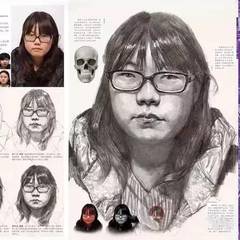大学英语六级基础语法知识分享 四六级报名
小编跟大家一起看看大学英语六级基础语法知识:常见句式六级英语法人运用
基础语法知识:常见句式
1.常考的几种倒装结构
1)当表示否定或基本否定的词或词组位于句首作状语时用倒装。这类词或词组常用的有:never,nowhere,seldom,rarely,little,hardly,scarcely,barely,notuntil,notonly,bynomeans,innotime,undernocircumstances,undernocondition,innoway,innocase,atnotime,onnoaccount等。
NeverhaveIhearditbefore.
NowherecanIfindmylostwatch.
Undernocircumstanceshouldastudentcheatintheexam.
NotonlywasChurchillastatesman,butalsoapoet.
Note:当nosooner…than"和hardly/scarcely…when/before"位于句首时用倒装。该结构表示一…就…",在时态上主句一般用过去完成时,when或than引导的从句用一般过去时。
Hardly/ScarcelyhadIgothomewhen/beforethebellrang.
Nosoonerhadtheperformancebegunthanthelightswentout.
2)当here,there,then,thus,only,hence,little等副词位于句首,句中主、谓用倒装。
Hereisthebookforyou.
Theregoesthebell.
Thencametheordertotakeoff.
Thusarosethedivisionbetweenthedevelopedanddevelopingcountries.
3)当so/such…that"结构中的so或such位于句首时用倒装。
SocoldwasitatnightthatIcouldhardlyfallasleep.
Suchwastheforceofexplosionthatallthewindowswerebroken.
4)分句以so,neither,nor,nomore等副词位于句首,表明前面句子中所说明的情况也使用于后面的句子时用倒装。
Copperisagoodconductor.Soaremanyothermetals.
Hedidn’tseethefilmlastnight,neitherdidshe.
2.强调句型
这里讲的强调句主要是以it为引导词的句。其构成形式为:Itis(was)被强调部分that(who,which)句子的其他部分。被强调的部分通常为主语、宾语和状语。
Itisonlywhenoneisillthatonerealizesthevalueofhealth.
Itiswhatyouwilldothatisessential.
Note:
在被强调部分的后面,一般用that引出句子的其他部分。但是如果强调的部分是表示人的名词,那么也可用who;如果是指物的名词也可用which。
ItwasJanethat/wholentmethemoney.
Itwasthisnovelthat/whichtheytalkedaboutlastnight.
如果强调的是原因状语从句,只能用because引导,不能由since,as或why引导。
Itwasbecause(不用since或as)hehadneverhadtheopportunitythatJohnhadn’tlearnedtodrive.
有三类句子成分不可以进行强调,即表语、谓语动词和由though,although,whereas等引导的从句。
Itisalthoughheisyoungthathecanspeakfourlanguages.(误)
Althoughheisyoung,hecanspeakfourlanguages.(正)
ItiswhereashepreferspopsongthatIlikeclassicalmusic.(误)
Ilikeclassicalmusicwhereashepreferspopsongs.(正)
3.使役动词后的宾语补足语
使役动词除了要有宾语之外还要加上宾语补足语才能使句子的意义完整。常用的使役动词有:have,want,make,get,leave,set,let等。可以担当使役动词宾语补足语的有名词,形容词,介词短语,动词不定式和分词等。
AllworkandnoplaymakesJackadullboy.
Agoodnight’srestwillsetyouright.
Note:
动词不定式可以担当使役动词的宾语补足语,但在make,let,have等使役动词后,动词不定式作宾语补足语时不用to。
Hemadehergiveuptheopportunity.
Whatwouldyouhavemedo?
Herpridewouldnotletherdothis.
分词也可以担当使役动词的宾语补足语。现在分词表示正在进行的主动意义,而过去分词表示已经完成的被动意义。
Herremarkleftmewonderingwhathewasdrivingat.
Thejokesetthemalllaughing.
Hemanagedtogetthejobdoneontime.
I’vejusthadsomenewphotostaken.
4.平行结构
在英语中,当两个或两个以上的同等成分(主语,谓语,宾语,表语,定语,状语,宾语补足语等)并列时,要求它们的词性或结构相同,即名词对名词,介词短语对介词短语,分词对分词,句子对句子等等。这就是英语的平行结构准则。一般在使用并列连词如and,but,or,neither…nor,either…or,notonly..butalso,both…and,more(less)…than,aswellas,rather…than等时,要注意不要违反平行结构准则。
HelikeswatchingTVmorethanreadingbooks.
Thesoldierpreferredtodieratherthansurrender.
WesawTomwalkingtowardstheriver,takingoffhisclothesandplungingintothewater.
Censorshippreventsamoviefrombeingshownorabookbeingsold.
5.反意疑问句
在具体运用反意疑问句时应注意以下几点:
1)如果陈述句部分是一个含有宾语从句的复杂句,则反意疑问部分的谓语动词和主语代词要与主句的谓语动词和主语相对应。
Heneversaidshewouldcome,didhe?
YoutoldmeIhadpassedtheexam,didn’tyou?
但是如果陈述句部分是I(don’t)think,believe,suppose,imagine,expect,fancy,reckon等宾语从句"的结构时,反意疑问部分的谓语动词和主语代词要与宾语从句的谓语动词和主语相对应,并且要注意否定的转移。
Isupposeyouarenotserious,areyou?
Sheimaginesthatpeoplelikeher,don’tthey?
Idon’tbelievesheknowsit,doesshe?(因don’t的否定意义后移而不用doesn’t)
Ididn’texpectshewouldcome,wouldshe?(因didn’t的否定意义后移而不用wouldn’t)
2)如果陈述句部分是祈使句,则反意疑问部分一般用willyou"。在否定祈使句后还是用willyou"。
Readthetext,willyou?
Don’tbelate,willyou?
如果陈述句部分是以Let’s开头的祈使句,则反意疑问部分一般用shallwe";如果是以Letus开头的祈使句,则反意疑问部分一般用willyou"。
Let’shaveapartytonight,shallwe?
Letusgohome,willyou?
3)如果陈述句部分带有never,nothing,nowhere,hardly,scarcely,seldom,rarely,barely,little,few等否定词或半否定词,反意疑问部分的动词要用肯定式。
Youcanhardlybelievethis,canyou?
Hehasfewgoodreasonsforstaying,hashe?
6.词序
当多个形容词共同修饰一个名词时,在意义上同名词关系密切的词,靠近该名词,其排列次序为ABCDEFG被修饰的名词"。其中:A.表示年龄、新旧的形容词,如old,young等。B.表示大小、长短、高低、重量的形容词,如little,big,long,heavy等。C.表示形态、形状的形容词,如round,square等。D.表示颜色的形容词,如red,white,green等。E.表示国籍、地区、出处的形容词,如British,southern,Italian等。F.表示物质、材料的形容词,如wooden,rocky等。G.表示用途、类别、目的、与…有关等的形容词,也包括起形容词作用的名词和分词,如medical,writing,geography等。其他形容词放在上述A类形容词之前。例如:
asmallroundbrownwoodentable
auseless,old,big,heavy,redgeographybook
avaluableoldFrenchwritingdesk
astrongyoungChineseboystudent
7.一些特殊的句型
1)thereisnopointindoingsth.
该句型意为做…是无济于事的/没有什么用的"。可以用verylittle或notmuch等来代替no。其中的point是不可数名词,作目的"、用处"解。
Thereisverylittlepointinarguingwithhim.
2)havedifficulty(ortrouble)indoingsth.
该句型意为做…有困难"。其中的in可以省略;其中的difficulty和trouble是不可数名词,不能有复数形式。也可以用thereisdifficulty(ortrouble)indoingsth.表达相同的意思。
Therewaslittledifficultyinfindinghim.
3)keep(sb.orsth.)busydoingsth.
该句型意为使…一直忙着做某事"。需注意的是虽然busywithdoingsth.和busyindoingsth.都是正确的,但考题中常考busydoingsth.句型。但如果busy后面跟的是名词,则要用busywithsth。
Wearebusypreparingfortheexamination.
4)feellikedoingsth.
该句型意为想做某事",且feellike后只能跟动名词,而不能跟动词不定式。此外,feellike后还可跟名词或代词,表示想要某物"。
IwassoangrythatIfeltlikethrowingsomethingathim.
Ifeellikebeertonight.
猜你喜欢内容
-
安装专业有哪些
安装工程是一个广泛领域,涵盖了多个专业方向,确保工程从设计到施工再到设备供应的顺利进行。以下是一...
-
如何考培训师资格证
要考取培训师资格证,您可以遵循以下步骤:国内流行的培训师资格证包括国家职业资格证、企业内部认证和...
-
语文相近专业有哪些
语文相近的专业主要包括以下几类:研究中国语言的词语、句法,赏析古今诗歌、散文、小说等文学作品,并...
-
工程专业类型有哪些
工程类专业是一个广泛且多样化的领域,涵盖了从基础设施建设到高端技术应用的多个方面。以下是一些主要...
-
永川中职有哪些专业
永川中职学校开设的专业相当丰富,涵盖了多个领域,以满足不同学生的兴趣和职业规划。以下是一些主要的...
-
非学生如何考英语四六级
非学生想要考取英语四级(CET-4),有以下几种途径可以考虑:非在校生可以通过社会考生身份报名参加英语...
-
幼师资格证跳舞怎么考
要考取舞蹈幼师资格证,您可以按照以下步骤进行:年龄要求:通常要求16岁以上。学历要求:大专及以上学...
-
船员驾驶员资格证怎么考
要考取船员驾驶员资格证,需要遵循以下步骤:首先,需要到船员服务部进行为期三天的学习,通过学习后参...
-
表演的专业有哪些
学表演的专业主要包括以下几种:培养从事戏剧、电影、电视剧等表演工作的专业人才。艺考内容包括自我介...
-
评审职称专业有哪些
职称评审涉及的专业非常广泛,以下是一些常见的专业类别:土木工程建筑工程机械工程电子工程化学工程计...



























